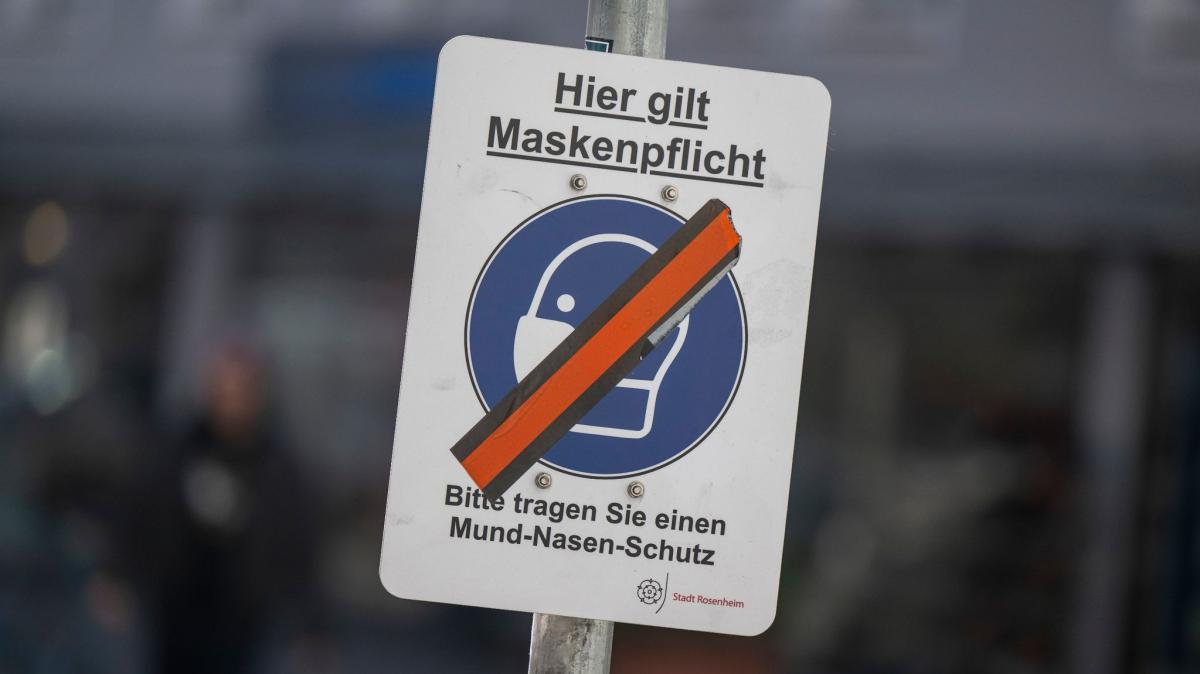Masks in supermarkets, schools, 3G or 2G access rules – the federal legal basis for these corona measures expires at the weekend. Most federal states are also not planning any hotspot rules.
Despite their own criticism of the nationwide expiry of most corona measures from the coming weekend, more and more federal states are deciding against using opportunities to extend the measures.
They justify this, among other things, with a lack of legal certainty. On Tuesday, the state governments decided in Bayern, Berlin, Brandenburg, Rhineland-Palatinate, Saxony, Schleswig-Holstein and the green-black coalition in Baden-Württemberg to phase out mask requirements in shops, schools or 2G and 3G access rules. So-called hotspot rules for the continuation of these measures are not to be put into effect for the time being.
North Rhine-Westphalia Prime Minister Hendrik Wüst (CDU) says it also sees no leeway to legally identify the whole of North Rhine-Westphalia as a corona hotspot. According to Health Minister Daniela Behrens (SPD) is currently not an option for a nationwide hotspot regulation, as she explained in the NDR. “For that we would have to prove a serious danger and overload of the health system.” Hesse had already declared that it would not use the special rule.
Elsewhere, decisions are still pending. In Thuringia, the red-red-green minority government wants to further extend the existing corona measures. A special session of the state parliament is planned for Thursday. But a majority is uncertain.
Mask requirements are only possible to a limited extent
From Sunday, according to the Infection Protection Act, which was amended by the traffic light coalition against great resistance from the federal states, mask requirements are only possible to a limited extent, for example in clinics or nursing homes, buses and trains. There may also still be regular tests in schools. The federal states want to continue to use these opportunities for the time being.
Mask requirements or 2G and 3G access rules in shops, schools, cultural and leisure facilities, on the other hand, are no longer possible, unless the respective state parliament determines a particularly critical corona situation for a region (hotspot rule). So far, this is only planned in Mecklenburg-Western Pomerania and Hamburg.
Hamburg: FDP and AfD threaten to sue
In Hamburg but announced after PDF on Tuesday too AfD a lawsuit against it should the citizenship declare the city a hotspot on Wednesday. It is wrong to justify a further extension of the mask requirement and other containment measures with the threat of hospital overload, since Hamburg has one of the lowest incidences nationwide and a stable situation in the clinics, said AfD State Vice President Krzysztof Walczak.
The federal states renewed their criticism of the traffic light coalition because of the new legal situation. Baden-Württemberg’s Prime Minister Winfried Kretschmann emphasized in Stuttgart that he would have liked to be able to maintain the mask requirement indoors and the access rules. But the federal government has withdrawn the legal basis for this from the federal states with the new Infection Protection Act. “I’m optimistic that it won’t get out of hand, for seasonal reasons,” said the Green politician, referring to the pandemic. Wüst, who is also chairman of the prime ministers’ conference, criticized: “That’s not what 16 prime ministers wanted.”
The number of confirmed corona cases in Germany remains at a high level. The health authorities in Germany reported 237,352 new infections to the Robert Koch Institute (RKI) within one day, as the RKI announced on Tuesday. A week ago there were 222,080 infections. The value of new infections per 100,000 inhabitants and week – the seven-day incidence – was 1703.3 on Tuesday morning (previous day: 1700.6, previous week: 1733.4). According to the information, 307 deaths were recorded across Germany within 24 hours. A week ago it was 264.
© dpa-infocom, dpa:220329-99-709358/7 (dpa)
–


